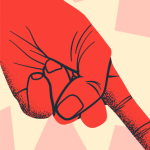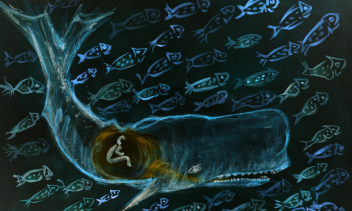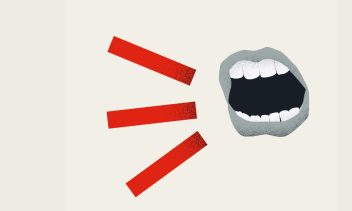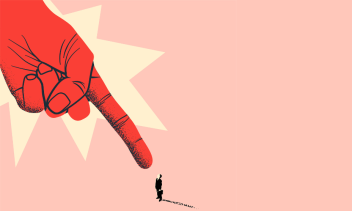Imagination is the doorway to higher destiny. We envision what life could look like under different conditions: if we lived elsewhere, if we wanted more, if we were different. Our will to change—whether that’s ourselves or our circumstances—can be sudden and abrupt. Once we want it, all that’s left to ask is how we do it.
In a fascinating piece for The Atlantic, Olga Khazan gave herself three months to change her personality. We want to extend beyond that, pinning down the mechanisms of change and the mindset to get to where we want to go.
University of Chicago associate professor of philosophy Agnes Callard joined 18Forty to work through that very goal, which is the focus of her book, Aspiration: The Agency of Becoming.
Agnes said that her book is a “general account of coming to have new core preferences,” which is coming to have new values. They typically will be ones we already appreciate but aspire to grasp better. She elaborates:
But one condition that my book places on the way that I want to use the word “aspiration,” which is close to, but isn’t, doesn’t always perfectly overlap with the way we use that word in English, is that I think something only counts as aspiration if the thing you’re trying to value is actually valuable.
The interview homed in on the nature of aspiration and what it practically means in our lives:
David Bashevkin:
Explain to me what’s happening when you make a commitment through the lens of your book, through aspiration. Is it just my present self, it’s the High Holidays coming up, I’m in synagogue, and I’m saying to myself, “Future self, future David,” that’s my name, “Future David, I want you to be the kind of person who, in six months from now, is springing out of bed, going to prayer, and doing all the things that you know are right, but you can’t get yourself to do. In six months from now, I hope my future self stays accountable to that past self, but what’s really happening when you make a promise or commitment to change?
Agnes Callard:
So, I think there are two different kinds of commitments that we can make to change. And maybe we could just classify them as small and big. So, the small ones I call self-cultivation, right? And those are cases where you might want to acquire a new desire or a new preference or a new value, but it fully serves some other value that you already have and that you have a complete grip on why it’s good. So, an example might be, you want to come to wake up early and to enjoy waking up early, because you think you’ll get more work done if you wake up early. Or you want to come to exercise more, and to enjoy exercise, because you think you’ll be healthier. And you already fully understand why you want to be healthier, right? So, that’s what I call self-cultivation.
And in those cases, I think the model of, “I make some promises or commitments and I try to hold myself to them” is perfectly fine. But I think that in the case of aspiration, where what I might hope from increased religiosity is that the person I turn into understands more than the person I am now. I shouldn’t be the one binding her, right? My future self knows more, is more educated, and has a better grip on the norms that I’m trying to learn than I do. So, the idea of me laying down the law for her doesn’t really make any sense.
Agnes lays down two frameworks: self-cultivation for values I already have and aspirations for values I want to adopt. The former works well with holding oneself accountable because the goal is already what one wants—no “convincing” needs to be done. For aspiration, however, you may not fully understand the value of what you are after, whether that’s following more mitzvot or entering a new stage in life. Agnes explains further:
I think that one way to put what needed to be understood is that people were inclined to take that promising small change framework and apply it to all kinds of personal changes. And that erases the possibility of the big changes, where it doesn’t make sense to be… for the more ignorant person, the worst self to be doing the legislating. And so I think in the case of these bigger changes, it’s still true that you lay down a bunch of laws, right? But you also expect that it’s as you start to follow them that you will start to grip the meaning of those laws, and that you will be able to lay them down better for yourself once you do that.
For bigger changes to last—say, reconstructing your daily routine or altering your religious living—we need to appreciate, in a deep and meaningful sense, the values behind them. The paradox is that we don’t have that life because we don’t yet value it in that way. Agnes suggests finding novel, incremental value with each step toward that future:n
So, even something like, suppose, I think that one could be in this position with respect to exercise. You could, instead of wanting to exercise because you independently know that it will make you healthy, maybe you think, and I did think this at one point in my life. I want to kind of appreciate just having a bodily self and being in the world in that way more than I do. And I think exercise is a way to appreciate that value that I’ve sort of shunned with my bookish nature. And so, I might make some rules for myself, like “I’m going to do this such and such every day.” And there are kind of a set of rules that I will come to see as being a bit silly. And I kind of know that I will, but it’s like a stepping stone.
And so, the way you come to see any rules that you make for yourself, insofar as you see yourself as engaged in this larger transformative project, is that you are just getting to a point where more of the value is in view, and then you’re going to have to revise. And the person whose judgment matters about the whole process, the person who will know how to assess this initial set of rules that you made for yourself, and maybe some of them were good and some of them weren’t, is the person at the end of the story. Not the person at the beginning of the story.
Instead of having our present self, or our past self, hold our future self responsible, Agnes suggests a model where our future self holds our present self responsible. The way we do that is two-fold: For the present, we find current values we can adopt to continue the behaviors leading us to long-lasting change. For the future, we rely upon ourselves at the end of this story.








